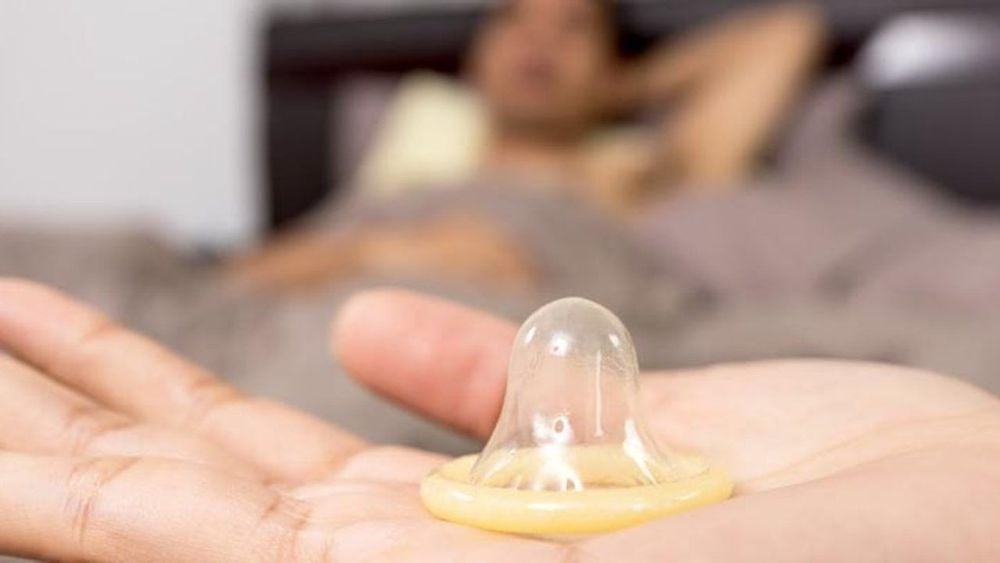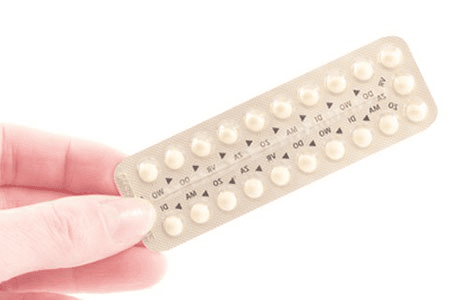This is an automatically translated article.
In addition to its effectiveness in preventing pregnancy and its associated beneficial effects, hormonal contraceptives may not be appropriate for some patients with a history of cardiovascular disease, cancer, smoking, or obesity. This article provides information about diseases and who should not take birth control pills.
1. What are hormonal contraceptives?
Oral hormonal contraceptives are birth control pills that contain synthetic forms of the two hormones estrogen and progestin.
Estrogen and progestin are two female sex hormones. The combination of estrogen and progestin works by stopping ovulation (the release of an egg from the ovary). They also change the lining of the uterus (womb) to prevent pregnancy and change the mucus in the cervix to prevent sperm (male reproductive cells) from entering.
Oral contraceptives are a very effective method of birth control, but they do not prevent the spread of human immunodeficiency virus (HIV, the virus that causes acquired immunodeficiency syndrome [AIDS] ]) and other sexually transmitted diseases.
Certain brands of birth control pills are also used to treat acne in certain patients. In addition, certain oral contraceptives (Beyaz, Yaz) are also used to relieve symptoms of PMS (physical and emotional symptoms that occur each month before menstruation) in women who are not pregnant. women who have chosen to use oral contraceptives to prevent pregnancy.
2. Who should not take birth control pills?
You should not take combined oral contraceptives if you have any of the following:
Blood clots or history of blood clotting problems History of stroke or heart attack Coronary artery disease Known or suspected cancer breast or uterine, cervical, or vaginal cancer Unexplained vaginal bleeding Jaundice (yellowing of the whites of the eyes or skin) during pregnancy or during previous medication use Liver tumors Known or suspect pregnancy If you plan to have surgery with extended bed rest Smoking and high blood pressure Uncontrolled high blood pressure or diabetes Have Lupus Migraine Smoke and be over 35 years old. You should not take Progestin-only birth control pills if you have blood clotting problems that have not been successfully treated.

Phụ nữ mắc bệnh mạch vành không nên uống thuốc tránh thai
3. Contraindications to the use of oral contraceptives
3.1 Absolute Contraindication Less than 6 weeks postpartum Smoker over 35 years old (>15 cigarettes per day) Hypertension (systolic >160mmhg or diastolic >100mmhg) Present of past history of blood Venous block (vte) Ischemic heart disease History of cerebrovascular accident Complicated heart valve disease (pulmonary hypertension, atrial fibrillation, subacute infective endocarditis) Migraine with symptoms Focal neuroendocrine breast cancer (current) Diabetes with retinopathy/kidney disease/neuropathy Severe cirrhosis Liver tumor (adenoma or liver tumor) 3.2 Relative contraindications Smokers over 35 years of age (<15 cigarettes per day) Hypertension (systolic 140 - 159mmhg or diastolic 90 - 99mmhg) Migraine over 35 years old Symptomatic gallbladder disease Mild cirrhosis History of cholestasis associated with oral contraceptives combination Drug users can interfere with the metabolism of oral contraceptives.
4. Alternative methods of contraception
If hormonal birth control methods don't work for you, you still have some birth control options.4.1 Use condoms But first, when you need to double check to see if you are allergic to condoms. There are condoms that are made from a number of different materials, like polyurethane and polyisoprene. If you haven't tried them yet, you should find out if they work for you. Because condoms are not only a great hormone-free birth control option, they also help protect you from sexually transmitted diseases.

Sử dụng bao cao su thay vì uống thuốc tránh thai
4.2 Copper IUD The copper IUD is the most effective and convenient of the non-hormonal options. Like all birth control methods, it has some risks, but overall it's really safe.
About the pain, you may have a little pain when you put it on, but that should go away pretty quickly. Some people have heavier periods or worse menstrual cramps with copper IUDs, but that also tends to subside over time. Talk to your doctor or nurse about a copper IUD to find out if it's right for you.
4.3 Diaphragm, cervical cap, and sponge Diaphragm, cervical cap, and sponge are also solid options that don't contain hormones, but they have a slightly higher retention than other methods. Doctors ask you to take birth control right before you have sex, which isn't for everyone.
Today there are many methods of contraception with many different forms, but before choosing the right method of contraception, you should go to a doctor to receive advice from a pharmacist/specialist to choose get the most appropriate and effective medication.
Please dial HOTLINE for more information or register for an appointment HERE. Download MyVinmec app to make appointments faster and to manage your bookings easily.













